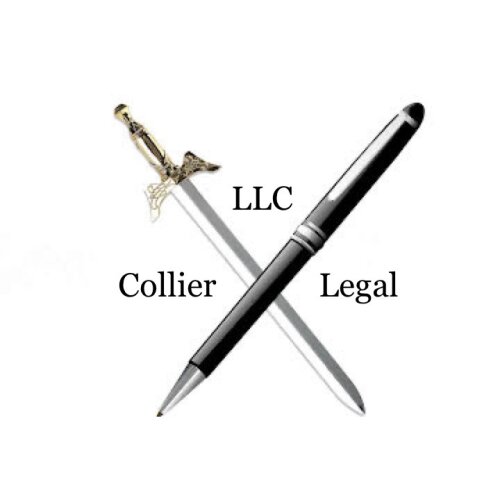Best Antitrust Litigation Lawyers in Ohio
Share your needs with us, get contacted by law firms.
Free. Takes 2 min.
Or refine your search by selecting a city:
List of the best lawyers in Ohio, United States
About Antitrust Litigation Law in Ohio, United States
Antitrust litigation in Ohio addresses legal disputes related to the preservation of free competition in the marketplace. These laws are designed to prevent unfair business practices like price-fixing, monopolization, bid-rigging, and other activities that harm consumers or competitors by restricting trade. Both federal and Ohio state antitrust laws apply, which means companies and individuals operating in Ohio must comply with a complex set of regulations aimed at protecting competition. Legal actions can include civil lawsuits, criminal prosecutions, or government investigations into alleged antitrust violations.
Why You May Need a Lawyer
Antitrust matters can involve high stakes, complex factual situations, and intricate legal issues. Here are some common situations where you might need legal assistance:
- If your business is accused of violating antitrust laws, such as engaging in price-fixing, bid-rigging, or market allocation schemes.
- If you suspect that another company is acting anticompetitively and it is harming your business, for example through exclusive dealing or unfair tying arrangements.
- If you are considering a merger or acquisition that might raise antitrust concerns and require pre-approval from regulatory authorities.
- If you face a civil lawsuit from competitors, consumers, or the government asserting antitrust violations.
- If you want to better understand whether your business agreements or practices could be viewed as anticompetitive.
- If your business is the target of a state or federal antitrust investigation in Ohio.
Antitrust litigation often involves detailed economic analysis, expert testimony, and extensive document review, all of which require an experienced legal team.
Local Laws Overview
In Ohio, both federal and state antitrust laws govern unfair business practices. The main federal statutes are the Sherman Act, the Clayton Act, and the Federal Trade Commission Act. Ohio has its own antitrust law known as the Valentine Act, codified in the Ohio Revised Code, sections 1331.01 et seq.
Key features of Ohio’s antitrust law include:
- The Valentine Act prohibits contracts, conspiracies, or combinations that restrain trade or commerce in Ohio.
- Ohio law allows individuals and businesses to file lawsuits for triple damages if they suffer harm from antitrust violations.
- The Ohio Attorney General's office plays a significant enforcement role, investigating and bringing actions against alleged violators.
- State law covers local and intrastate commerce, but most interstate activities fall under federal jurisdiction.
- Common types of cases include allegations of price-fixing, bid-rigging, monopolization, price discrimination, and anti-competitive mergers.
Understanding how federal and Ohio-specific laws interact is essential for compliance and effective litigation strategy.
Frequently Asked Questions
What is antitrust litigation?
Antitrust litigation involves legal actions taken to enforce laws that promote competition and prevent unfair business practices like monopolization, price-fixing, or market allocation.
Who can bring an antitrust lawsuit in Ohio?
Lawsuits can be filed by private individuals, businesses harmed by antitrust violations, or by government agencies such as the Ohio Attorney General or the U.S. Department of Justice.
What penalties can result from an antitrust violation in Ohio?
Penalties may include monetary damages (sometimes triple damages), fines, court orders to change business practices, and in criminal cases, jail time for responsible individuals.
How are antitrust laws enforced in Ohio?
Antitrust laws are enforced by both the federal government and the Ohio Attorney General’s office. Private parties harmed by unlawful conduct can also bring lawsuits.
What is the Ohio Valentine Act?
The Valentine Act is Ohio's version of state antitrust law, which prohibits agreements that restrain trade or create monopolies within the state.
Can mergers or acquisitions be challenged on antitrust grounds?
Yes, mergers and acquisitions that may substantially lessen competition can be challenged under both federal and Ohio antitrust laws.
What should I do if I am accused of an antitrust violation?
Seek legal representation immediately. Do not destroy documents or discuss the case with others before consulting an experienced antitrust attorney.
What are common examples of antitrust violations?
Examples include price-fixing, bid-rigging, exclusive dealing, refusal to deal, group boycotts, and predatory pricing.
Can small businesses be subject to antitrust laws?
Yes, any business, regardless of size, can be subject to antitrust laws if it engages in practices that restrain trade or competition.
How long does an antitrust lawsuit typically take?
Antitrust litigation is often complex and can take several months to years, depending on the facts of the case, the amount of evidence, and court schedules.
Additional Resources
If you need more information or assistance related to antitrust issues in Ohio, the following resources may be helpful:
- Ohio Attorney General’s Office - Antitrust Section: Investigates and prosecutes antitrust violations within Ohio.
- United States Department of Justice - Antitrust Division: Handles federal antitrust enforcement.
- Federal Trade Commission (FTC): Enforces federal antitrust laws and provides consumer education.
- Ohio State Bar Association: Offers lawyer referrals and information on antitrust law professionals in Ohio.
- Legal Aid Societies: Provide assistance for individuals who meet certain income requirements and are involved in antitrust matters.
Next Steps
If you believe you are involved in a situation that may require antitrust litigation or have questions about your rights, consider the following actions:
- Document all relevant information, including communications, contracts, and incidents related to the potential antitrust issue.
- Consult with an attorney who has experience in antitrust litigation in Ohio. Many law firms offer free initial consultations.
- Contact the Ohio Attorney General’s office if you believe you are a victim of anticompetitive practices.
- Do not take actions such as destroying documents or communicating with involved parties until you have legal guidance.
- Educate yourself using reputable resources or seek support from local bar associations or legal aid organizations.
Having the right legal representation is critical in antitrust matters because of the laws’ complexity and the potential consequences involved. Take prompt action to preserve your rights and address any antitrust concerns effectively.
Lawzana helps you find the best lawyers and law firms in Ohio through a curated and pre-screened list of qualified legal professionals. Our platform offers rankings and detailed profiles of attorneys and law firms, allowing you to compare based on practice areas, including Antitrust Litigation, experience, and client feedback.
Each profile includes a description of the firm's areas of practice, client reviews, team members and partners, year of establishment, spoken languages, office locations, contact information, social media presence, and any published articles or resources. Most firms on our platform speak English and are experienced in both local and international legal matters.
Get a quote from top-rated law firms in Ohio, United States — quickly, securely, and without unnecessary hassle.
Disclaimer:
The information provided on this page is for general informational purposes only and does not constitute legal advice. While we strive to ensure the accuracy and relevance of the content, legal information may change over time, and interpretations of the law can vary. You should always consult with a qualified legal professional for advice specific to your situation.
We disclaim all liability for actions taken or not taken based on the content of this page. If you believe any information is incorrect or outdated, please contact us, and we will review and update it where appropriate.
Browse antitrust litigation law firms by city in Ohio
Refine your search by selecting a city.















